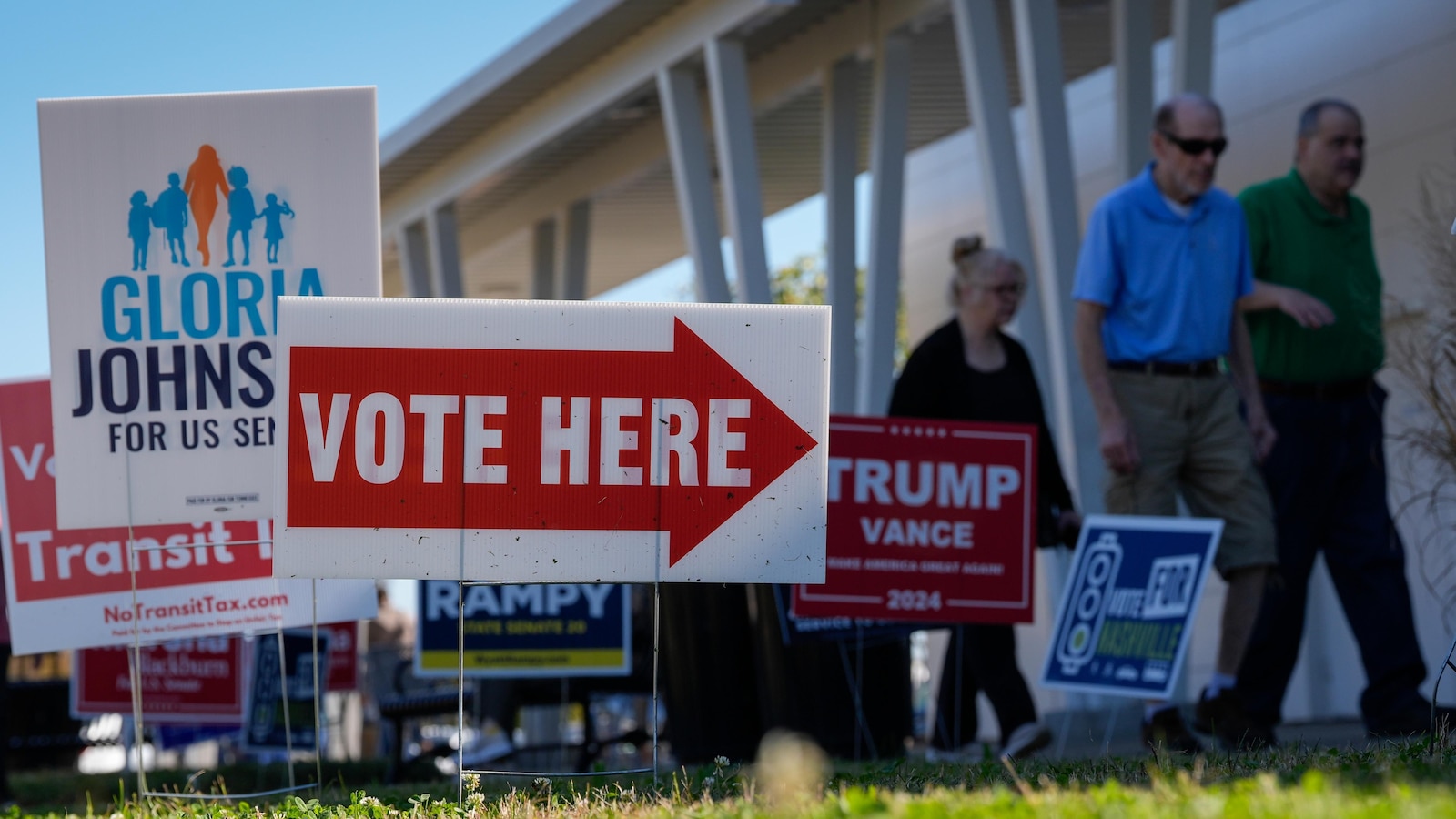[ad_1]
NASHVILLE, Tenn. — Tennessee’s Republican legislative supermajority will remain unchanged after Democrats failed to flip seats in a handful of competitive races, but the minority party didn’t give up any ground, either.
Unofficial election results show that Republicans will continue to hold 75 out of the 99 seats inside the House chamber, the same amount the GOP held before Tuesday. Over in the Senate, Republicans will have 27 members while Democrats will continue to have just six.
“We were able to hold all 75 seats, which was a great thing under a lot of money spent by the other side,” House Speaker Cameron Sexton said Wednesday. “And we’re looking forward to coming back with our supermajority intact at 75 and continuing to do what we’ve been doing to move Tennessee ahead.”
Some Democratic officials expressed relief that their numbers didn’t diminish as Republicans enjoyed big wins nationally, with former President Donald Trump winning a second term and the GOP winning control of the U.S. Senate. In Tennessee, Trump and Republican U.S. Sen. Marsha Blackburn both ran up their margins to almost 30 percentage points, outpacing their previous statewide elections.
Blackburn defeated state Rep. Gloria Johnson. She was one of three Democratic lawmakers who centered the national spotlight on Tennessee after Republicans targeted them last year in an expulsion push. They were protesting on the House floor for gun control changes after a deadly elementary school shooting in Nashville.
In her concession speech Tuesday, Johnson promised to supporters: “We’re going to flip some state House seats.”
Though they gained no ground, Democrats in key races outperformed a rough election, said Rep. John Ray Clemmons, the House Democratic Caucus chairman.
“It may not look like progress,” Clemmons said. “But in this environment, and given the national political headwinds that we were facing at the top of the ticket, holding the line was truly remarkable.”
Democrats had invested heavily in Allie Phillips’ bid to flip a Republican-controlled House seat north of Nashville. Phillips shot to national fame when she shared on social media that she was unable to get an abortion in Tennessee for a non-viable pregnancy under the state’s abortion ban and had to travel to Washington, D.C., to get the health care she needed.
Despite national media coverage of Phillips, Republican Rep. Jeff Burkhart won reelection by nearly 10 percentage points.
In Nashville, Democrat Shaundelle Brooks won an open House seat, defeating Republican Chad Bobo. Republicans targeted the Democratic-held district in Tennessee’s liberal-leaning capital city, but Brooks had a nearly eight-point lead over Bobo as of Wednesday.
Brooks’ son, Akilah DaSilva, was among four people killed and two wounded in a mass shooting at a Nashville Waffle House in 2018. The tragedy kickstarted Brooks’ gun control advocacy in a state with lax firearms laws.
But around Memphis, Democrats were unable to chip away at Republican control. GOP Rep. John Gillespie was reelected by four percentage points over Democrat Jess Huseth.
With the GOP ranks unharmed, Republican Gov. Bill Lee and legislative leaders wasted no time restarting their push for a universal school voucher program. On Wednesday, Lee and other key lawmakers unveiled a voucher proposal that would allow families to use public funds for private school tuition.
Lee had pitched a sweeping voucher proposal earlier this year, but abandoned it due to Republican infighting over how it would be implemented.
It’s unclear if he’ll have more consensus in 2025. Lee took the extra step during the August primary election of endorsing Republican school choice proponents, and none of those candidates lost on Tuesday.
In neighboring Kentucky on Tuesday, voters soundly rejected a voucher-style ballot measure intended to allow state lawmakers to allocate public tax dollars to support students attending private or charter schools.
Separately, Tennessee voters approved several ballot initiatives ranging from gun control to transit improvements.
In Memphis, voters approved a non-binding ballot measure that sought to require permits to carry a handgun, ban the possession of AR-15 style rifles and implement a so-called red flag ordinance, which allows law enforcement officials to remove firearms from those found to be an imminent danger to themselves or others.
City officials and other supporters acknowledged that it wouldn’t be enacted without support from Tennessee GOP lawmakers, who have rebuffed almost all its provisions.
In Nashville, voters passed a $3.1 billion transportation proposal that supporters say will improve the city’s bus system, sidewalks and traffic signals. Under the plan, Davidson County — which encompasses Nashville — will increase its sales tax by half a cent to fund the transit improvements.
“What Nashvillians can look forward to is sidewalks that connect to one another, traffic lights that are smart enough to keep the maximum amount of traffic moving, a transportation system that makes sense and is convenient when you need it, and roads with safety improvements for the first time in decades,” Nashville Mayor Freddie O’Connell said in a statement.



